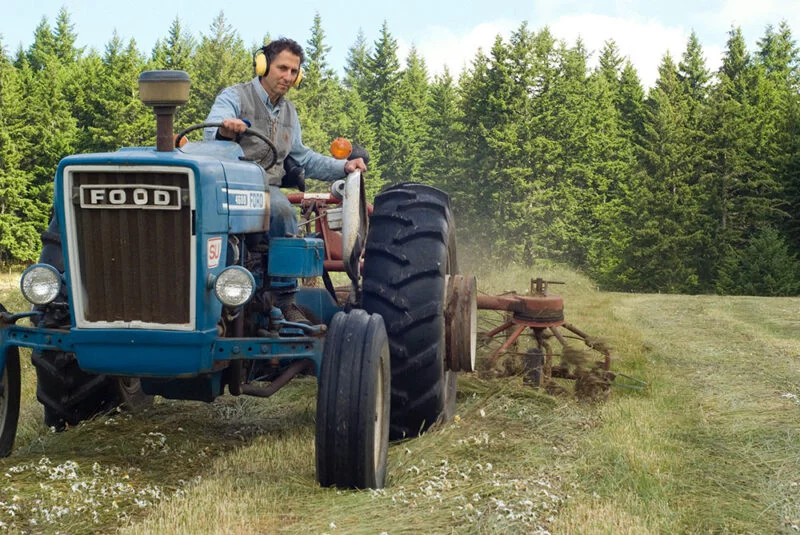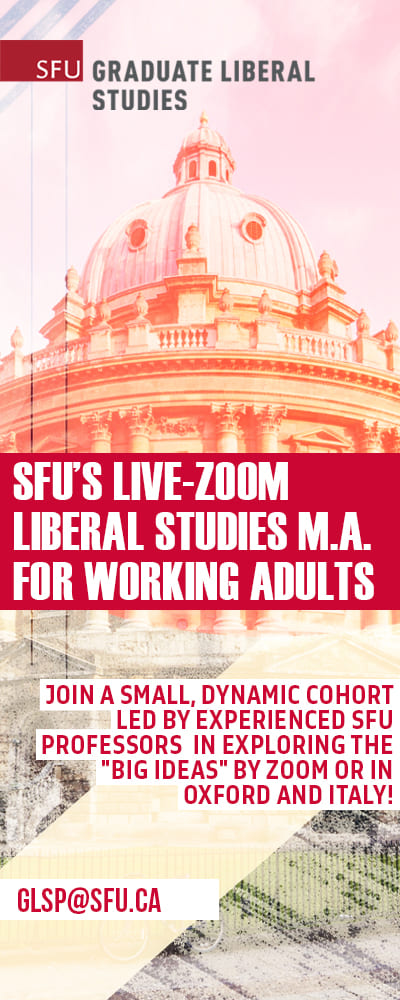#932 Ableman’s urban agriculture
Farm the City: A Toolkit for Setting up a Successful Urban Farm
by Michael Ableman
Gabriola: New Society, 2020
$19.95 / 9780865719392
Reviewed by Rose Morrison
*
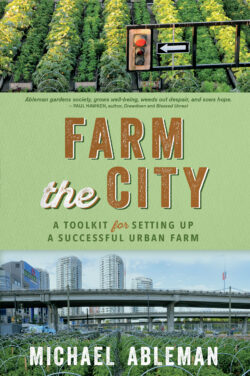 While Michael Ableman’s Farm the City: A Toolkit for Setting up a Successful Urban Farm is written as a primer for those wishing to start an in-town farm, many other readers will enjoy it, including food gardeners and those interested in community social responsibility. Ableman is co-founder and director of Vancouver-based Sole Food Street Farms. He is the author of four previous books about sustainable agriculture, and he has farmed organically for many years in both the United States and Canada, most notably at Foxglove Farm on Salt Spring Island.
While Michael Ableman’s Farm the City: A Toolkit for Setting up a Successful Urban Farm is written as a primer for those wishing to start an in-town farm, many other readers will enjoy it, including food gardeners and those interested in community social responsibility. Ableman is co-founder and director of Vancouver-based Sole Food Street Farms. He is the author of four previous books about sustainable agriculture, and he has farmed organically for many years in both the United States and Canada, most notably at Foxglove Farm on Salt Spring Island.
Ableman’s Farm the City: A Toolkit for Setting up a Successful Urban Farm is everything it sets out to be. There are many conventional farm planning guides, published by governments, financial institutions, universities, and individuals. Often, beginning farmers constructing agricultural enterprise plans struggle with the sound but dry material and the financial statement requirements that characterize some of these guides. Ableman’s Farm the City is neither conventional nor difficult. Granted, it is also neither a farm development manual nor focussed on field-based farm production. Farm the City is a good introduction to the considerations involved, decisions to be made, and the detailed knowledge involved in planning a farm.

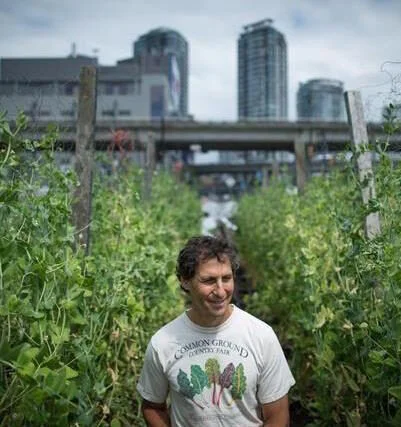
Ableman writes an honest introduction for the would-be urban farmer who, more often than not, does not have the opportunity to farm on natural, in-place soil. Because Farm the City is accessible, well written, and practical, it will also be a useful read for anyone concerned about local food production and the imperatives of food security and sovereignty.
Before there is a toolkit for farm planning there must be a mission, and some goals. Sole Foods Street Farms is owned by Cultivate Canada, the charity that oversees the farms’ operations. Part of Cultivate Canada’s mission is to demonstrate and interpret vital connections between farming, land stewardship, and community well-being. Sole Farms endeavours to do this by providing jobs and training for people with limited resources, while producing and marketing quality vegetables and fruit. The bottom line is as important to Sole Farms as it is to conventional farms, but Sole Farms’ system manages to be intentionally more holistic than many.
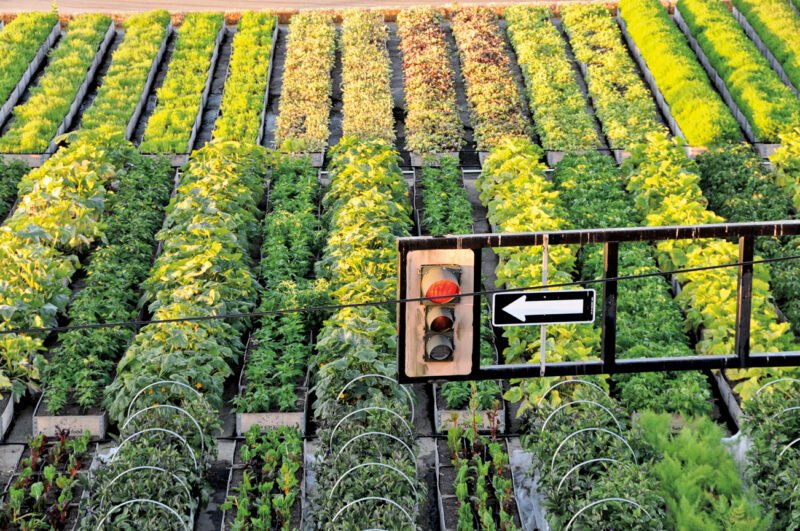
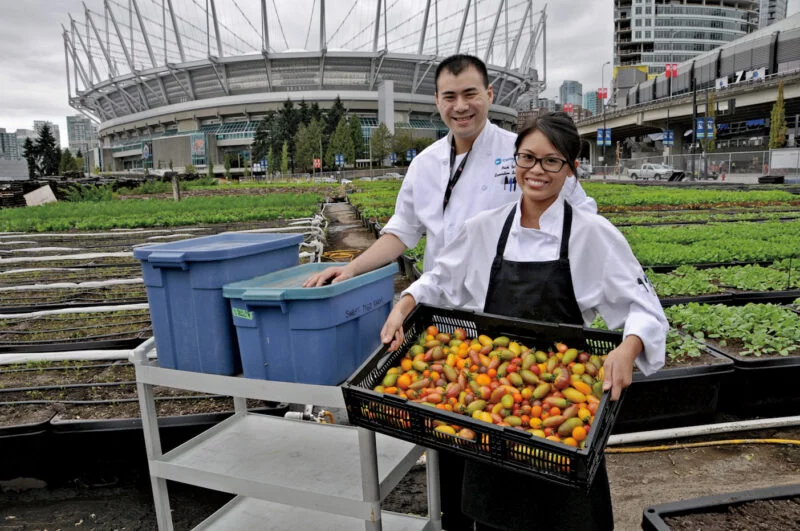
Ableman’s first piece of advice to future farmers is that they need a lot of hands-on experience before starting their own farm. When it comes to financial capital, he concentrates on fund-raising, rather than applying to a bank for a loan. This reader would add that today’s want-to-be farmers are often open to sharing their various assets in a co-operative farm arrangement. Ableman notes the difficulty of finding land to buy in the city and recommends long-term leases. The city farmer will also have to navigate city permits and policy. Those who have seen Sole Farms’ impressive array of growing boxes on leased brownfield sites on the edge of downtown Vancouver may wonder how this was accomplished. The section on acquiring land to farm on in the city is well worth reading.
Ableman describes many of the things a potential urban farmer needs to know and decide before putting a structured plan together. Understandably, there is a large section here on growing. Ableman pays good attention to soil. The “soils” at Sole Farms in Vancouver are manufactured, made from brought-in compost and sand or peat. He acknowledges some imperfect steps in the system, such as transport. It should also be acknowledged that transportable sand is scarcer than it was; and that peat harvesting requires the drainage and depletion of peat bogs. The “Growing” section is well written and practical; it mentions crop choices, quantities, crop rotations, planting and harvesting dates, and marketing strategies. It is a good resource for new growers and a useful checklist for experienced vegetable and fruit growers.
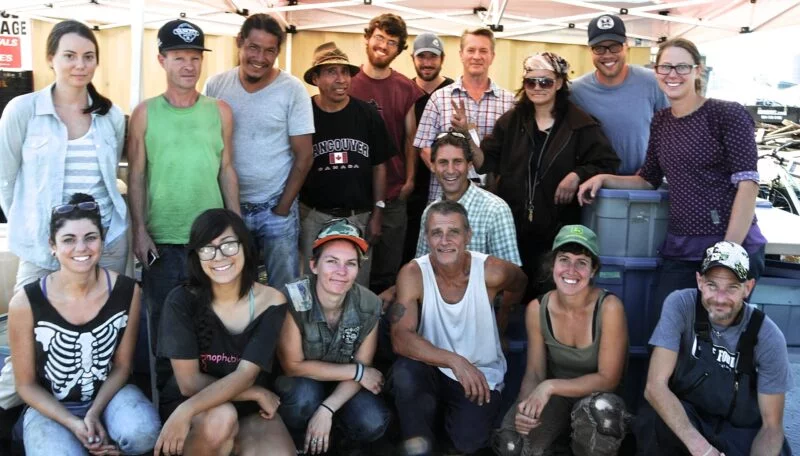
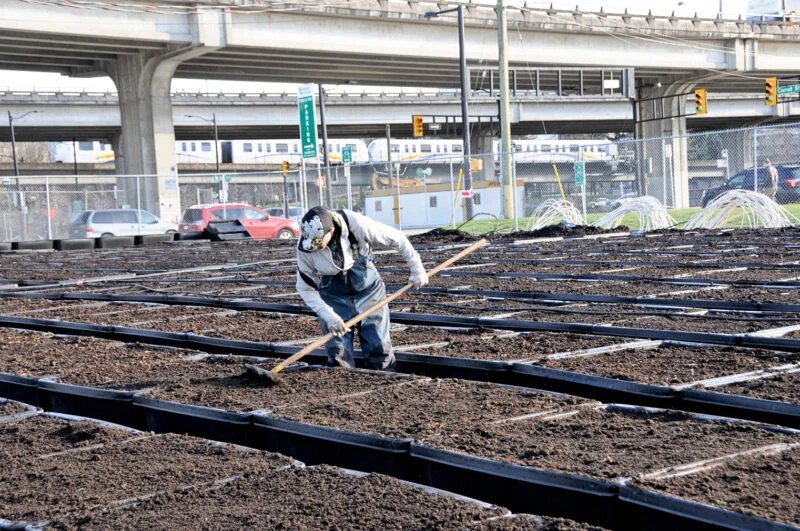
The urban farmer may be a good producer, but unless the farm produce is well marketed locally, the farm is not likely to be successful. The “Marketing” section is also full of good information and Ableman offers several markets for consideration, such as direct selling at farmers’ markets, joining or starting a community supported agriculture system, wholesaling, or selling to restaurants. Readers may not remember all the details, but the book is a good reference.
Ableman’s conversational style makes Farm the City an enjoyable and illuminating read, and although this book is an introduction to planning an urban farm, he does not ignore the paperwork and calculations that go into the actual plan. In several places he invites readers to go online to browse Sole Farms’ online resources, which include a start-up budget, capital expenditures projection, planting plans, and seeding plans. These resources are informative; and they are a gentle way for beginners to become acquainted with farm financial statements. Readers may be surprised at Sole Farms’ high start-up costs and the amount of work that goes into good production plans.
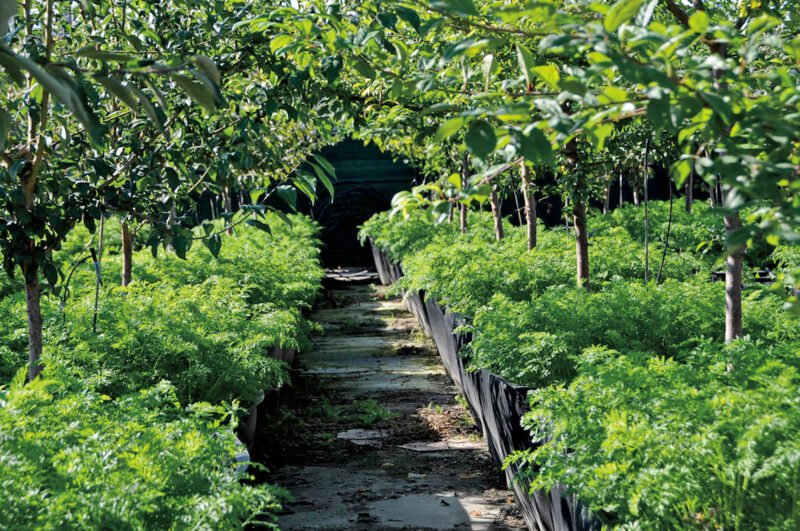
Farm the City includes a page of Ableman’s general farming principles, which offer a thoughtful list for beginners to consider. I had only minor quibbles with two of them. Not everyone will agree totally with Ableman’s Urban Farming Manifesto, but he presents reasonable solutions to some complex food and farming issues that society needs to address soon if holistic farming and food sovereignty are to be attained. Two independent research studies conclude that Sole Farms’ policy of employing people who have had employment challenges has significant financial and social benefit to the community. Details are available online under Sole Farms Street Farms’ Resources section.
Michael Ableman’s Farm the City: A Toolkit for Setting up a Successful Urban Farm is a good book – and a timely one. Inclusion of more Canadian resource websites would be helpful, as would a sentence in the growing section regarding the importance of air quality when planning to grow food crops in the city. There may be a place for more “tool kits” like this one to assist beginning producers in sectors such as vegetable greenhouse production, field-based crop production, livestock production, and mixed farming, to shift into farm planning mode.
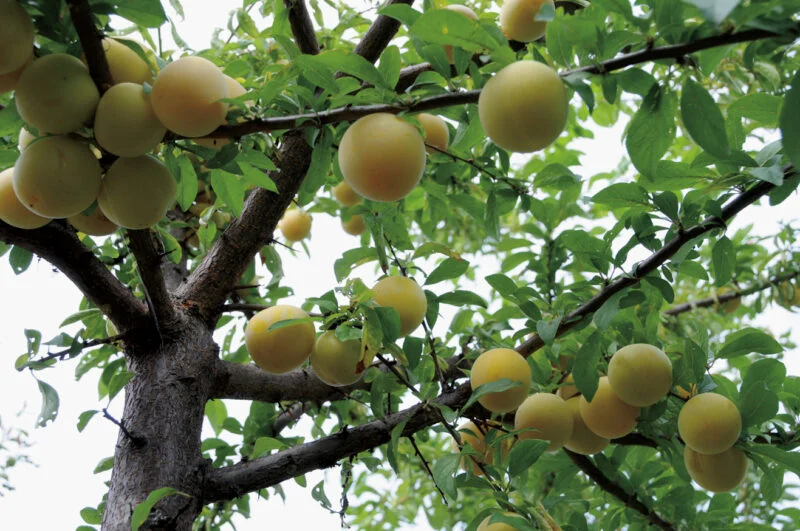
*
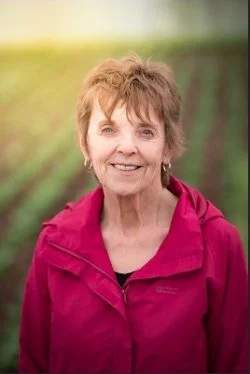
Rose Morrison lives and writes in British Columbia’s bounteous Fraser Valley. She has a large, somewhat dysfunctional family that she loves dearly; and she has always been in awe of the earth. Rose enjoys good friends, walking, travelling and reading. She likes writing poetry and creative non-fiction. Her ongoing project is to convince her long-in-progress novella and her current poetry collection to finish themselves. She remains pleasantly surprised to be professor emerita in the Agriculture Technology Department of the University of the Fraser Valley. Editor’s note: previously for The Ormsby Review, Rose Morrison has reviewed books by Collin Varner and Dorothy Kirk.
*
The Ormsby Review. More Books. More Reviews. More Often.
Publisher and Editor: Richard Mackie
The Ormsby Review is a journal service for in-depth coverage of B.C. books and authors. The Advisory Board consists of Jean Barman, Robin Fisher, Cole Harris, Wade Davis, Hugh Johnston, Patricia Roy, David Stouck, and Graeme Wynn. Scholarly Patron: SFU Graduate Liberal Studies. Honorary Patron: Yosef Wosk. Provincial Government Patron since September 2018: Creative BC
“Only connect.” – E.M. Forster
